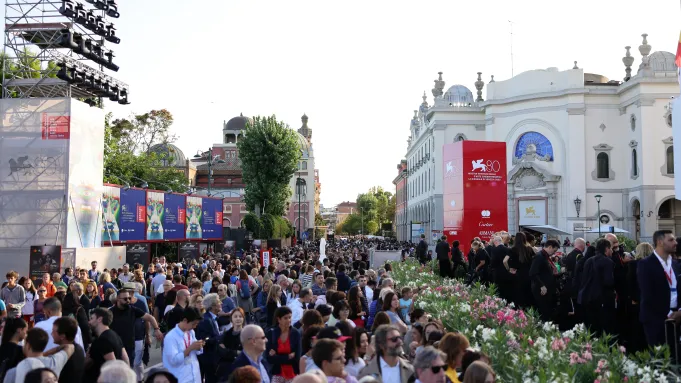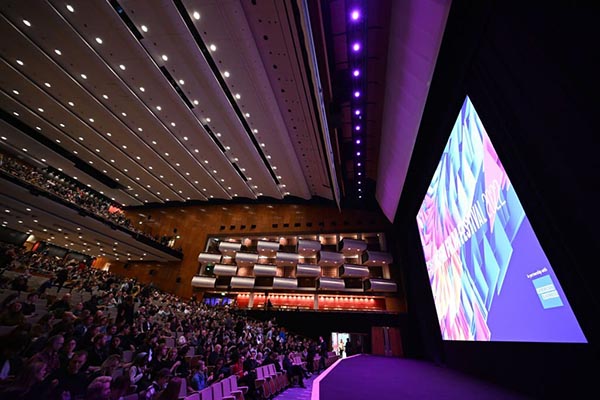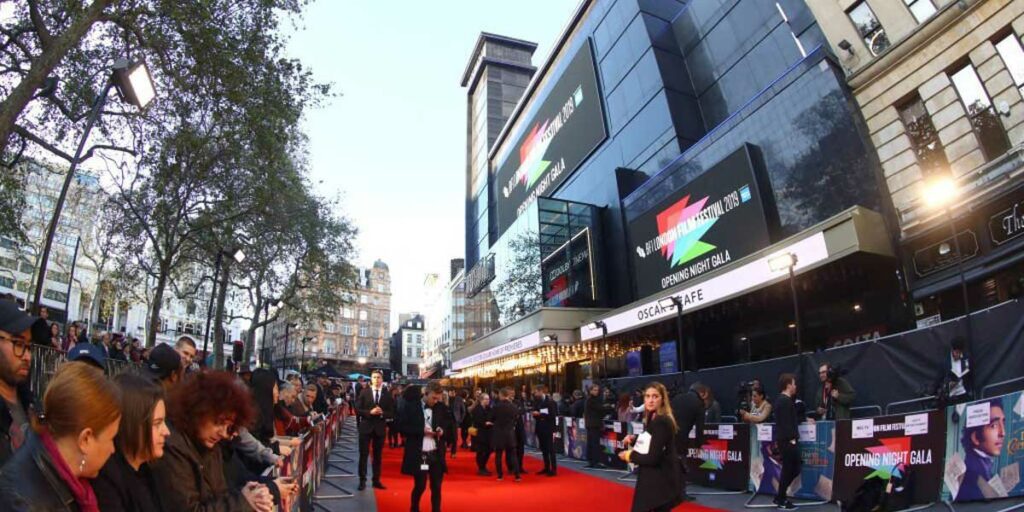Attending film festivals as a journalist is fun, but there’s one aspect no one discusses from a social anxiety perspective: the post-festival blues.
Author: Natasha Jagger
Film festival season is upon us, but so is seasonal depression. It’s a period that generates a cocktail of emotions: the hesitant excitement of seeing films weeks, if not months, before general audiences, the anxiety of never-ending press queues, the overwhelming factor of deadlines. Mostly, festivals are a rewarding experience. Whether their niche is film or not, a lot of journalists write due to the therapeutic powers of their words escaping the confines of their brain. Writing can often offer an escape from reality and be of great benefit to our mental wellbeing. Attending festivals such as Cannes, Venice and London is a serene, fun and fulfilling experience, but it can also become overwhelming. As an anxious journalist, there’s something I feel is less discussed within the industry: post-festival blues.
Film festivals provide an opportunity for press and members of the public to view a carefully curated programme of upcoming films, whether they are in competition for the festival’s laurels, premiering internationally, or still after attention from distributors. It’s a great introduction to the awards season, where we get a temperature on who could be in the running to receive top honours from awards shows such as The Oscars. There is a perception that festivals such as Cannes and Venice are at the top of the elite hierarchy of festivals, and sure, from an outside perspective, this is accurate. The enticement of seeing celebrities – when not striking for fair pay – arrive decked out in million-dollar jewels, wearing pieces from the fashion runways makes us somewhat starstruck. It’s hard not to be incredibly enamoured by the idea of seeing the people we have deified in society.
But those such as myself, working as members of the press, don’t get to enjoy the glamorous side of festivals. Our day consists of multiple film screenings a day that usually start at 8am, long queues where snacks become our best friends, and trying to write early preview reviews on your phone mid-queue, not to mention fitting time around attending interviews. It’s daunting, but the festival provides one hell of a rush. There’s not just you rushing around, but thousands of people doing the same, and this creates an entanglement of feelings during the festival where you’re so busy that you’re not processing the usual gnawing loneliness you experience.

As someone who suffers from quite high functioning anxiety, it’s a minefield. Oftentimes, I need five to ten minutes to hide in a bathroom and have a mini cry to process both the stress and exhaustion, but also to breathe and give myself a pat on the back for even showing up. The positives do outweigh the negatives, of course, along with conflicting feelings of wanting the festival both to never end and to end so you can simply catch up on sleep.
Despite my anxiety when I’ve attended festivals in the past, once home I always craved to be back in the press battlefield. Coming back from the London Film Festival last year (my first festival since 2017), I sat alone in my one-bedroom flat in Sheffield, completely in awe of what I had accomplished within that one week of back-to-back films, interviewing directors of some creatively unique projects, and socialising with fellow journalists. But at the same time, my anxiety was coming in from all different directions. I smiled a lot, cried a lot. I felt strangely isolated again, left to my own thoughts. The self-diagnosis being the blues. I craved to be back in the centre of the festival’s craziness.
Anxiety is sadly a b****, and it’s hard to interpret because everyone struggles differently. If I was to describe how anxiety travels, it would be in waves. It’s a constant roller-coaster of emotions. Heightened loneliness, lack of confidence dragging you down, and feeling like you’re constantly having an existential crisis: the list is non-exhaustive., Journalists write to offer an escape from reality, and attending film festivals is something that allows me to escape my own personal reality. For example, since living alone I’ve found my social anxiety has deepened. How does one go to social events and speak to people for more than 5 minutes? How can I stop this fear of people judging me?
My time at the London Film Festival last year was memorable beyond belief. For one, it allowed me to not be solo tripping to the cinema, which is my normal opus. Being part of a group of cinephiles experiencing a film as an entity felt wholesome, despite also being terrifying. There was no room to feel sad about reality. During a public screening of The Whale, myself and a guy to my right were consoling each other for at least the last 20 minutes of the film. We were both blubbering messes, both making sure one another was okay. I didn’t even know his name, but that didn’t matter. In that moment, the disconnect from my own personal loneliness evaporated. Once the film ended, I obviously never saw him again.
Very occasionally, I think about that said guy from The Whale screening. Not in a romantic way of course, but in a way of feeling blessed to have had such an interaction. For not allowing social anxiety to get the better of me, but for it to feel organic. Random experiences such as this can happen to anyone, not just press, but it is exactly how cinema can connect us. From the journalistic point of view, meeting our peers in physical form rather than seeing their avatar pop up on social media is equal parts thrilling and anxiety inducing. Back then, I felt connected to everyone I had met, but when I returned home, I longed for those physical connections again instantly. This part of the blues I found particularly difficult.
Anyone who suffers mentally at times or feels any type of loneliness will understand how aching it can be to try and get everyone to like you and to be your friend. It’s that struggle of being in your 20s where you’ve not quite got your footing in the industry that’s hard and at times confusing. But also, no one tells you that making friends as an adult is difficult – where is the instruction manual please? That being said, meeting these peers can make you feel secure in many ways. Connecting through our work instantly makes us feel like we’ve found our place in a new big friend group.

This is also what makes the post-festival blues difficult. Saying goodbye is never easy, especially with the joyful circumstances you’ve experienced with them in that time. You’ll miss not having those people rushing with you to screenings or rushing to meet deadlines. Going back to normal cinema life kinda sucks for a little while because of the blues.
The exhilaration of a festival is like a high, and no one really talks about the comedown once it’s all over. Perhaps it’s because of how scary it is to open up about our honest feelings, whether it’s anxiety or loneliness that emerge after a period of happiness, or because they feel like they will be judged. To be a journalist these days takes a lot of strength and determination, but it can also drain the living daylights out of us. Festivals become a blessing and a curse. Meeting our fellow co-workers (especially those who live outside of London, like myself) only happens at film festivals. We crave the thoughts of others in our industry and equally strive to be liked by our peers.
Let’s be honest: anxiety sucks, but it can also allow us to creatively free our minds. The discussions regarding post-festival blues, or perhaps the loneliness that can come with it, are happening amongst intimate circles, but it is arguably an emotion that occurs without real acknowledgement on a wider scale within the industry. The art that we immerse ourselves in can generate mixed feelings at times, but that is what life is within any role or personal circumstance. I am so thankful for films, and festivals for creating such a safe space within its own chaos. The blues can feel suffocating, but recalling the experience gets us through it. At least until the next film festival.
The 2023 BFI London Film Festival will take place on October 4 – 15 in London and in cinemas across the UK.

